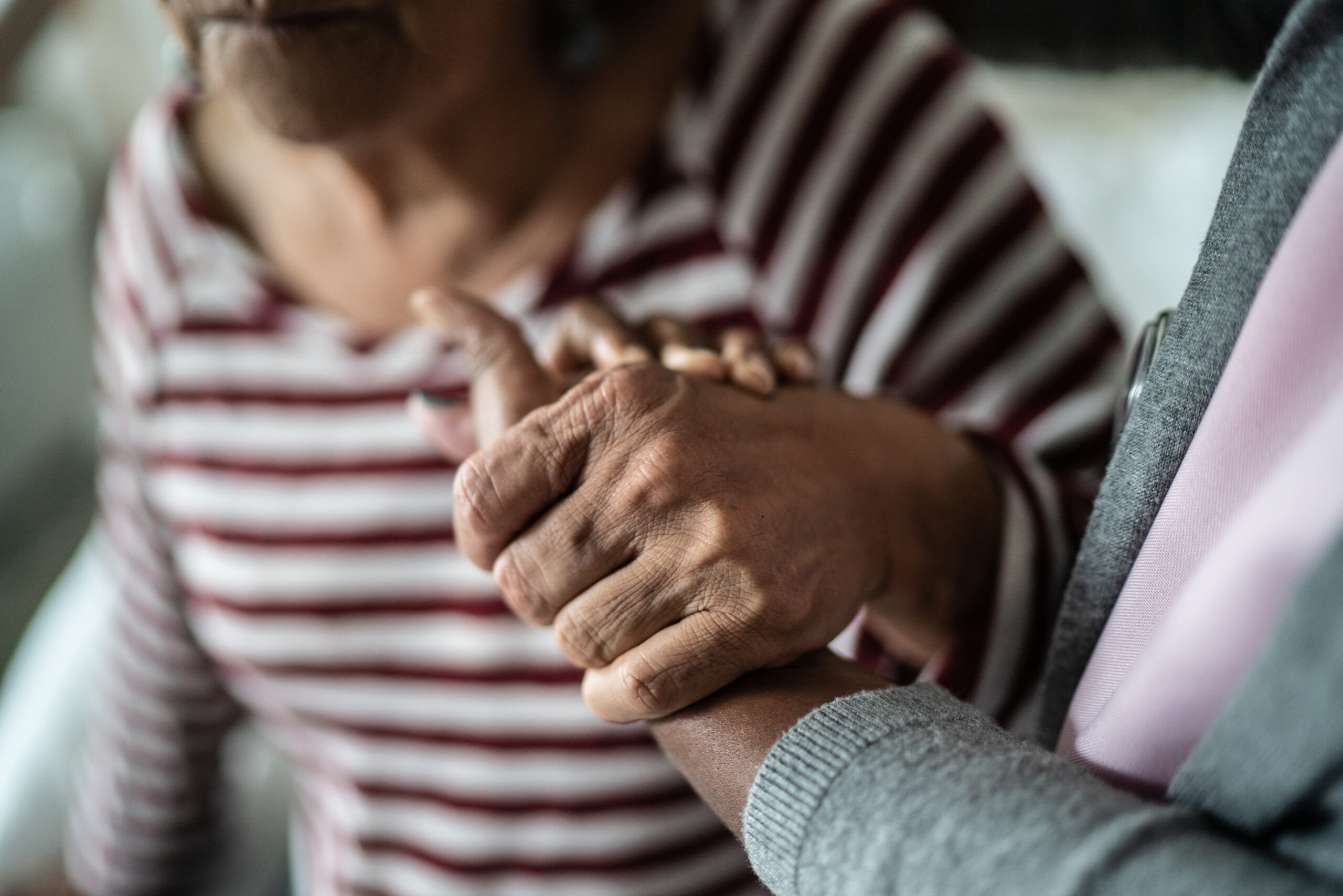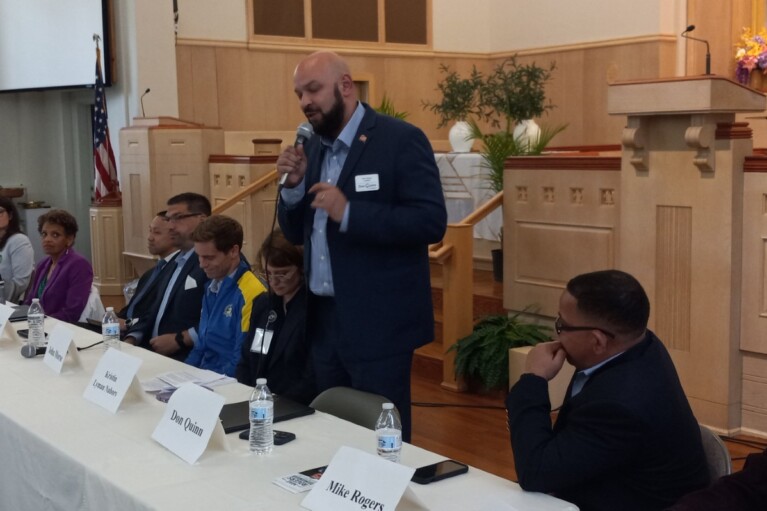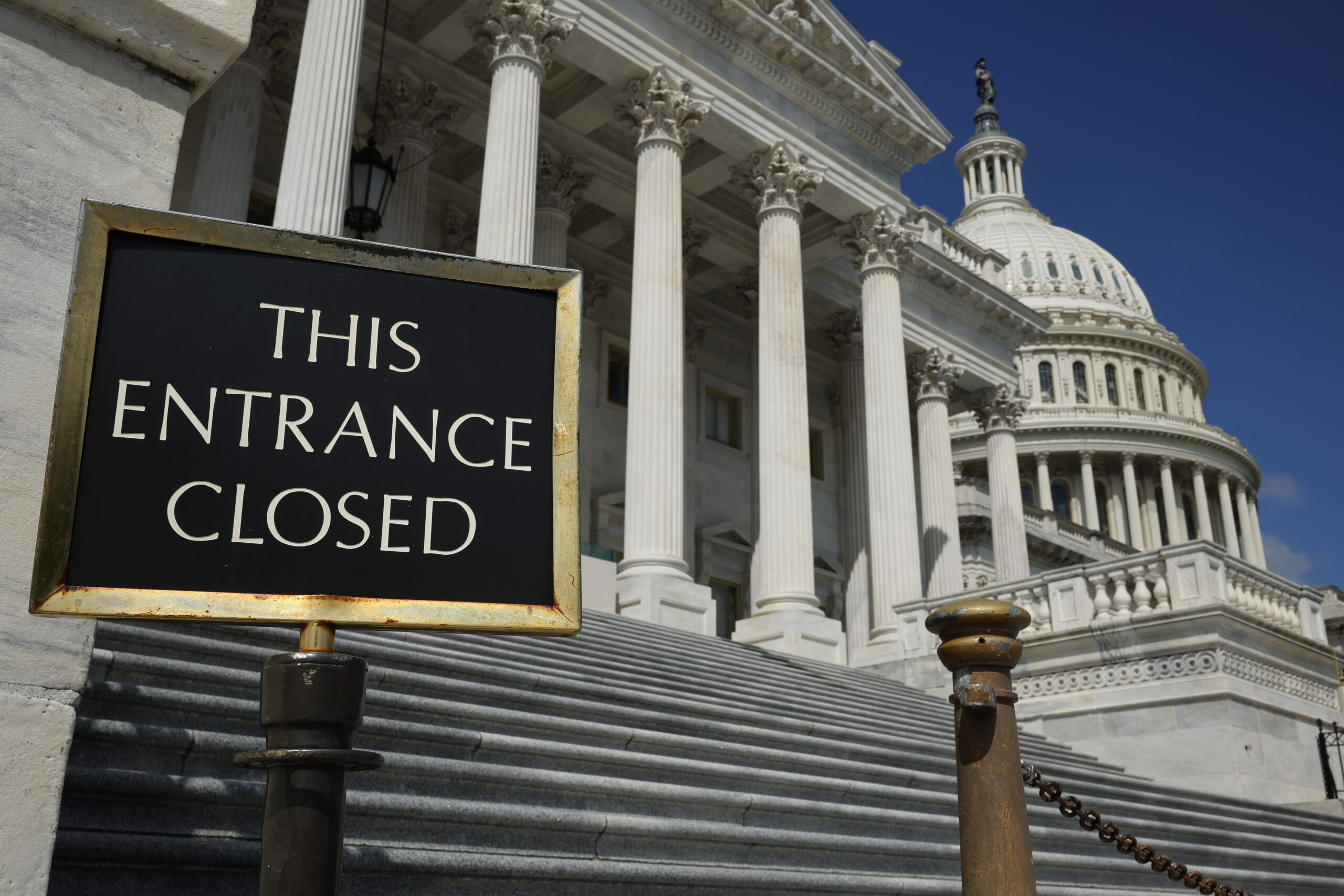Poll: Md. voters support medical aid-in-dying option, but bill is far from the finish line

A recent poll of Maryland voters suggests broad support for proposed medical aid-in-dying legislation, a widely-debated bill that would allow qualifying terminally ill patients to prompt their own death through the help of a physician.
Compassion and Choices, a nonprofit advocacy group pushing for aid-in-dying legislation across the U.S., commissioned Annapolis-based Gonzales Research & Media to survey Maryland voters on the issue.
The survey results, released last week, showed that 69.9% of Maryland voters think that a mentally sound but terminally ill adult with only six months to live should have the legal option to request medical aid-in-dying services, while 22% of those who responded to the poll do not support that option. About 8% of the respondents did not answer.
The survey was conducted Jan. 23-Feb. 2 over the phone. A total of 815 registered voters in Maryland responded to the survey questions. The poll had a 3.5-point margin of error.
The overall support for medical aid-in-dying spans political parties and demographics, according to the poll results, as 72% of Democrats surveyed were in support along with 69% of Republicans and 65% of unaffiliated voters.
White voters are more likely to support medical aid-in-dying options, with 74% of white voters in support compared to 66% of Black voters. About 72% of men surveyed support aid-in-dying options compared to 68% of women who responded to the survey.
The survey also asked voters to consider what they would do if they had a terminal illness and had a medical aid in dying option.
“If you had an incurable, terminal illness, still had a sound mind, had less than six months to live, and you met the legal requirements, would you want the option of medical aid-in-dying…yes or no?” the poll asked.
Support for that question dropped to 59.3%, with 39.8% saying they would not want the option of medical aid-in-dying.
One of the common criticisms against the legislation is concern that some vulnerable populations, such as people with disabilities, might be coerced into seeking aid-in-dying options so as to not be a burden on their families and loved ones.
However, the Gonzales survey found that Maryland voters who have disabilities might be more likely to favor aid-in-dying legislation.
There were 164 survey respondents who self-described as having a physical or mental disability “that seriously limits life activities.”
Of those 164 voters, 130 or 79.3% of disabled voters would support medical aid-in-dying services for those who are terminally ill, compared to 16.5% disabled voters who do not support the option. The remaining 4.3% did not provide an answer.
The poll results give an idea of how Marylanders feel about medical aid-in-dying, as state lawmakers try to pass the legislation once again.
2024 End-of-Life Option Act
Efforts to pass medical aid-in-dying have been unsuccessful in years past. Notably, in 2019 the aid-in-dying legislation came to an end on the Senate floor when one senator chose not to vote at all, leading to a 23-23 tie vote and the bill’s demise.
Members of House Health and Government Operations Committee and the Judiciary Committee listened to hours of public testimony Friday on the legislation, referred to as the End-of-Life Option Act (The Honorable Elijah E. Cummings and the Honorable Shane E. Pendergrass Act).
The delegates gathered over a Zoom call for a virtual bill hearing on HB 403, sponsored by Del. Terri L. Hill (D-Howard).
“The topic under this bill is one that raises a great deal of emotion and thought…I have had many conversations with people about the issues addressed in this legislation over several years,” Hill said Friday. “Many of the members on this joint committee have also had this bill before them and have wrestled with what it attempts to do.”
During the hearing, devoted partners and long-time friends of those who passed away from fatal illnesses shared difficult stories of supporting their loved-ones in their final moments of life. Medical professionals and religious leaders on both sides of the issue also weighed in.
SB 433, the Senate version of the legislation, was heard in the Senate Finance Committee on Feb. 8, with similarly emotional public testimony and challenging discussions. The bill is sponsored by Sen. Jeff Waldstreicher (D-Montgomery).
Neither bills have been scheduled for committee votes. If the legislation is approved in committee, the bills would still need to be considered in a full vote by the House and Senate. Meanwhile, lawmakers could add changes to the legislation through amendments.
Bill supporters are hopeful that the 2024 session is the year that medical aid-in-dying legislation will be successful and become Maryland law.
Senate President Bill Ferguson (D-Baltimore City) has previously said that he believes there will be enough favorable votes for the legislation in the Senate chamber. And Gov. Wes Moore (D) indicated his interest in signing the legislation should it come to his desk. Both Moore and Ferguson say that the specifics of the bill will be critical.




 Creative Commons Attribution
Creative Commons Attribution